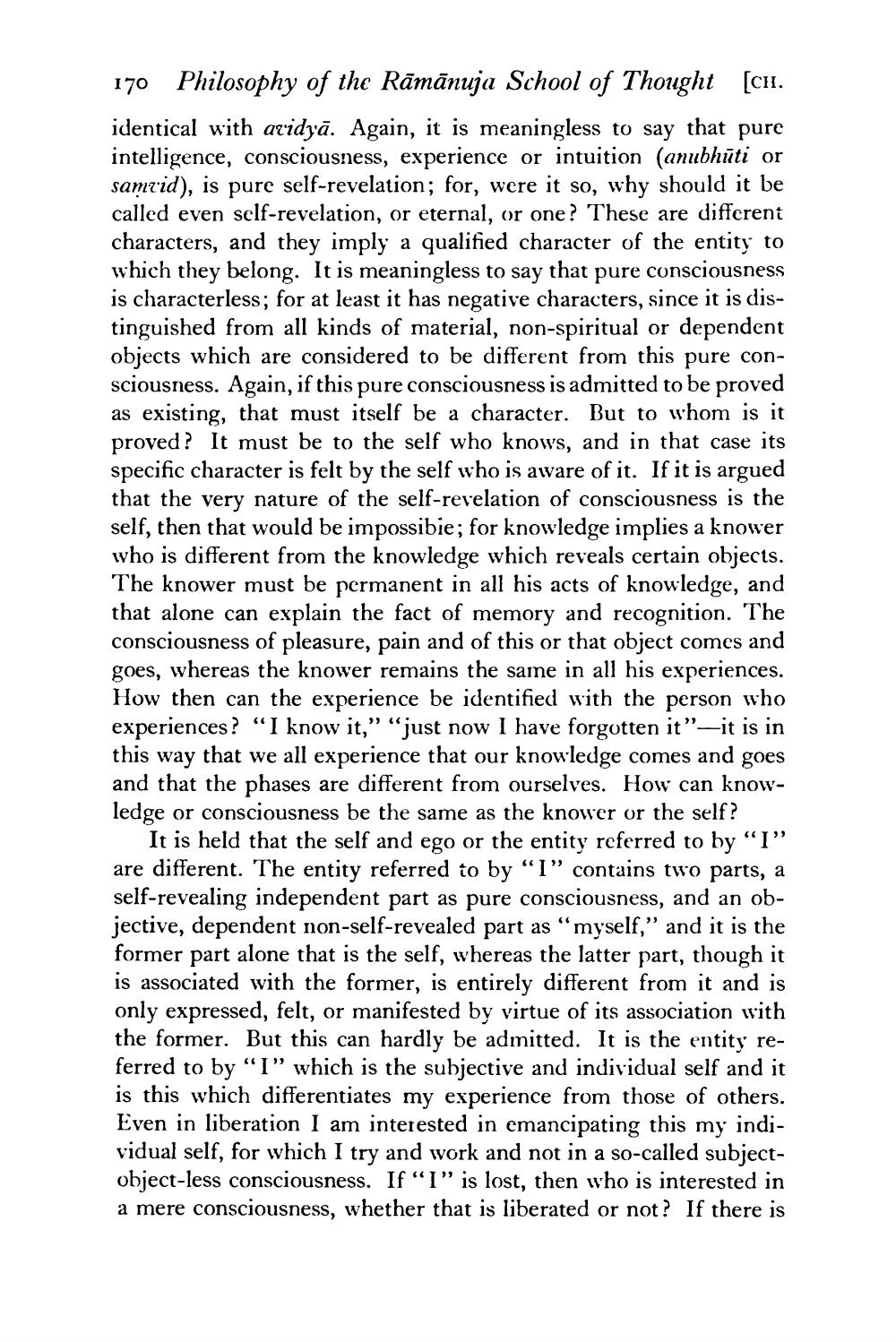________________
170 Philosophy of the Rāmānuja School of Thought [ch. identical with avidyā. Again, it is meaningless to say that pure intelligence, consciousness, experience or intuition (anubhūti or samrid), is pure self-revelation; for, were it so, why should it be called even self-revelation, or eternal, or one? These are different characters, and they imply a qualified character of the entity to which they belong. It is meaningless to say that pure consciousness is characterless; for at least it has negative characters, since it is distinguished from all kinds of material, non-spiritual or dependent objects which are considered to be different from this pure consciousness. Again, if this pure consciousness is admitted to be proved as existing, that must itself be a character. But to whom is it proved? It must be to the self who knows, and in that case its specific character is felt by the self who is aware of it. If it is argued that the very nature of the self-revelation of consciousness is the self, then that would be impossibie; for knowledge implies a knower who is different from the knowledge which reveals certain objects. The knower must be permanent in all his acts of knowledge, and that alone can explain the fact of memory and recognition. The consciousness of pleasure, pain and of this or that object comes and goes, whereas the knower remains the same in all his experiences. How then can the experience be identified with the person who experiences? “I know it," "just now I have forgotten it”-it is in this way that we all experience that our knowledge comes and goes and that the phases are different from ourselves. How can knowledge or consciousness be the same as the knower or the self?
It is held that the self and ego or the entity referred to by “T” are different. The entity referred to by “I” contains two parts, a self-revealing independent part as pure consciousness, and an objective, dependent non-self-revealed part as “myself,” and it is the former part alone that is the self, whereas the latter part, though it is associated with the former, is entirely different from it and is only expressed, felt, or manifested by virtue of its association with the former. But this can hardly be admitted. It is the entity referred to by “I” which is the subjective and individual self and it is this which differentiates my experience from those of others. Even in liberation I am interested in emancipating this my individual self, for which I try and work and not in a so-called subjectobject-less consciousness. If “I” is lost, then who is interested in a mere consciousness, whether that is liberated or not? If there is




